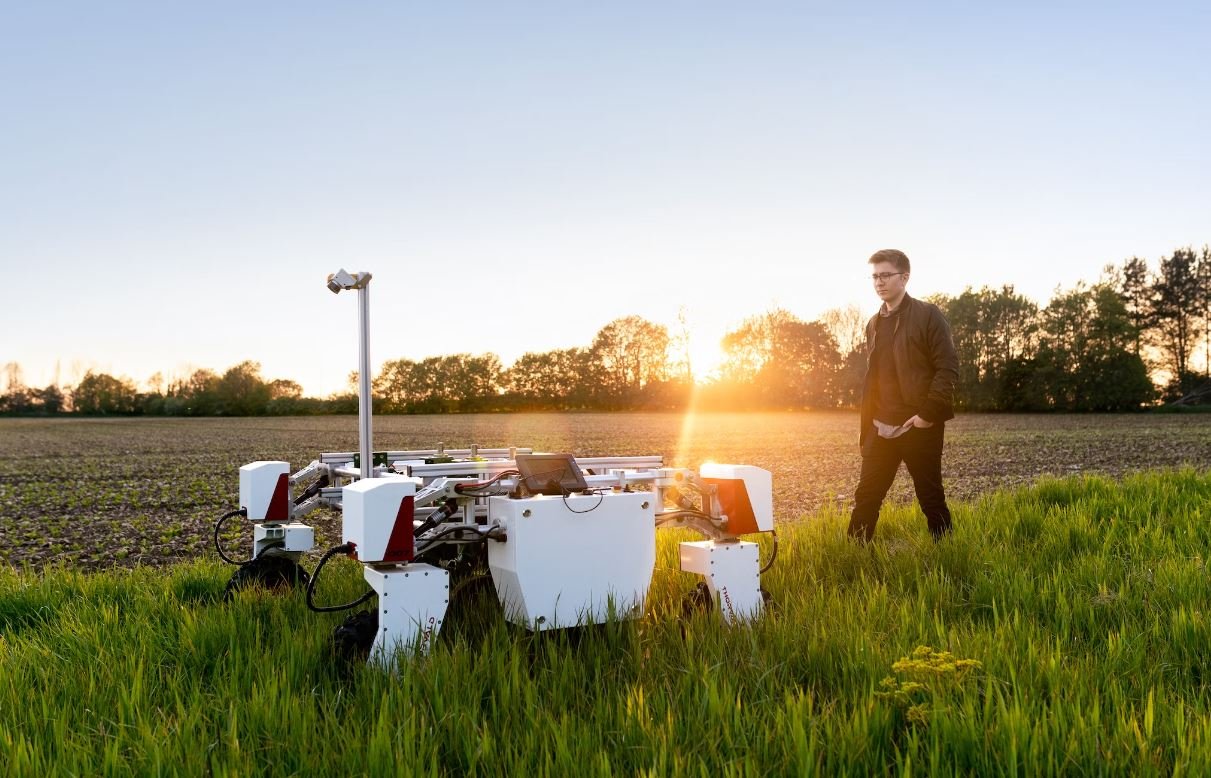AI and Privacy
Artificial Intelligence (AI) has rapidly become an integral part of our daily lives, influencing everything from the ads we see online to the voice assistants on our smartphones. While AI provides numerous benefits, there are growing concerns about the impact it has on personal privacy. This article delves into the intersection of AI and privacy, exploring the issues at hand and highlighting ways individuals can protect their privacy in an AI-driven world.
Key Takeaways
- AI poses challenges to personal privacy.
- Data collection and storage need to be approached with caution.
- Individuals can take steps to protect their privacy.
Understanding AI’s Impact on Privacy
One of the primary areas of concern surrounding AI is the collection and utilization of personal data. **AI algorithms rely on vast amounts of data** to make accurate predictions and provide personalized services. *This raises significant questions regarding the privacy and security of individuals’ personal information in an age of constant data gathering*. From social media platforms to online shopping sites, AI applications gather, analyze, and retain an enormous amount of data about consumers.
Risks and Challenges
There are several risks and challenges associated with the intersection of AI and privacy. First and foremost, **data breaches** pose a significant threat, potentially exposing sensitive information and leaving individuals vulnerable to various forms of cybercrime. *With the increase in AI-driven devices, the potential for data breaches has also escalated*. Moreover, the opacity of AI algorithms, known as “black boxes,” presents challenges when it comes to understanding how decisions are made and whether biases are present.
Protecting Privacy in an AI-Driven World
While the challenges are significant, individuals can take steps to protect their privacy in an AI-driven world. **Being aware of data collection practices** is crucial, as it allows individuals to make informed decisions regarding the platforms and applications they engage with. *Understanding the privacy policies and terms of service of AI-powered services can help users assess potential risks and make informed choices*. Additionally, individuals should regularly review and update their privacy settings on various platforms to ensure they are comfortable with the level of data visibility.
Data Privacy Regulations
Recognizing the need to address privacy concerns, several countries have implemented data privacy regulations. **Notable examples include the European Union’s General Data Protection Regulation (GDPR)**, which focuses on protecting individuals’ personal data and giving them control over how it is used. *These regulations aim to provide individuals with more transparency and control over their personal information* while placing obligations on organizations to handle data responsibly.
The following tables provide interesting information and data points regarding AI adoption, data breaches, and privacy regulation efforts:
| Data Breaches | Privacy Regulations | AI Adoption |
|---|---|---|
| In 2020 alone, there were 1,001 publicly disclosed data breaches, exposing over 155 million records. | The GDPR, implemented in 2018, fines non-compliant organizations up to €20 million or 4% of global annual turnover, whichever is higher. | According to a survey, 37% of organizations have implemented AI in some form, and 43% plan to adopt it in the near future. |
Conclusion
As AI continues to advance, it is essential to address the privacy concerns that arise. **Protecting personal data** and ensuring individuals have control over how it is used should be a priority for both individuals and organizations. *By staying informed and taking proactive steps to protect privacy, individuals can navigate the AI-driven landscape while safeguarding their personal information*.

Common Misconceptions
Misconception 1: AI is a Threat to Privacy
One common misconception is that AI poses a significant threat to privacy. While it is true that AI technologies have the potential to collect and analyze vast amounts of data, it does not necessarily mean that privacy is inherently at risk. It is important to understand that AI systems are designed to process data in an anonymous and secure manner, without specifically identifying individuals.
- AI systems can be developed to prioritize privacy and employ encryption and anonymization techniques.
- Data collected by AI can be used in aggregate form without disclosing specific personal information.
- Laws and regulations, such as GDPR, exist to protect individuals’ privacy rights when it comes to AI and data processing.
Misconception 2: AI is Constantly Listening and Monitoring
Another common misconception is that AI is always listening and monitoring our conversations and activities. While voice assistant devices like Siri or Alexa do listen for certain commands, they are not constantly recording or transmitting audio data unless prompted by a wake word or specific action. Additionally, AI systems that use visual or behavioral recognition algorithms do not record or monitor individuals without their knowledge or consent.
- AI-enabled devices have built-in privacy settings that allow users to control when and how their data is collected.
- AI algorithms are designed to respect privacy by focusing on relevant data and tasks, without unnecessary invasion of privacy.
- It is important to read and understand privacy policies and terms of service to ensure proper consent and control over data collection by AI systems.
Misconception 3: AI is Infallible and Never Makes Mistakes
One misconception is that AI systems are infallible and never make mistakes. While AI technology has made significant advancements in recent years, it is still prone to errors and limitations. AI systems learn from the data they are trained on, which means they can potentially inherit biases or make incorrect decisions based on flawed or incomplete information.
- AI systems can be trained on diverse and representative datasets to minimize biases and improve accuracy.
- Human oversight and accountability are essential to identify and address potential AI errors or biases.
- Transparency in AI algorithms and decision-making processes can help uncover and rectify errors or biases.
Misconception 4: AI Can Read and Understand Thoughts
An incorrect belief is that AI can read and understand human thoughts. While AI has made significant progress in natural language processing and understanding, it is not capable of directly accessing or reading an individual’s thoughts. AI systems rely on data input, such as text or voice, to make sense of information and generate responses.
- AI systems analyze patterns in data to provide responses or predictions, but they cannot access subjective or internal thoughts.
- Researchers are exploring brain-computer interfaces, but such technologies are still in early stages and not yet capable of mind-reading.
- Privacy concerns related to mind-reading are largely speculative and not currently a practical concern with current AI capabilities.
Misconception 5: AI Will Replace Human Interaction and Jobs
Lastly, a common misconception is that AI will completely replace human interaction and jobs. While AI has the potential to automate certain tasks, it is not intended to replace human interaction or eliminate jobs. AI technology is designed to augment and enhance human capabilities, providing efficiency and assistance, rather than completely replacing them.
- AI systems can handle repetitive or mundane tasks, allowing humans to focus on more complex or creative work.
- AI can improve productivity and assist in decision-making, but human interaction and expertise are still valuable in many domains.
- The integration of AI technology often leads to the creation of new job roles and opportunities.

AI Technologies and Their Impact on Privacy
Artificial Intelligence (AI) technologies are rapidly transforming various industries, including healthcare, finance, and transportation. With their immense potential for improving efficiency and accuracy, AI systems are collecting vast amounts of personal data. This table provides a glimpse into the increasing reliance on AI technologies and the corresponding privacy concerns.
| Industry | AI Application | Data Collected | Privacy Concerns |
|---|---|---|---|
| Healthcare | AI-assisted diagnosis | Medical records, test results, genetic data | Possible breaches leading to medical identity theft |
| Finance | Fraud detection algorithms | Financial transactions, credit scores | Potential misuse of personal financial information |
| Transportation | Autonomous vehicles | Location data, travel patterns | Concerns over surveillance and potential data leaks |
Emerging Trends in AI and Privacy Research
As AI technologies advance, researchers grapple with various challenges related to privacy protection. This table highlights recent trends in AI and privacy research, shedding light on the approaches being explored to mitigate privacy risks.
| Research Field | Trend | Description |
|---|---|---|
| Federated Learning | Secure aggregation | Developing privacy-preserving methods for AI models trained across distributed devices |
| Differential Privacy | Noise injection techniques | Adding statistical noise to datasets to protect individual privacy while maintaining data utility |
| Ethical AI | Privacy impact assessments | Assessing the potential privacy implications and risks associated with AI system deployments |
AI Assistants and Their Data Practices
AI assistants, like virtual voice-controlled devices, have become increasingly popular in homes and offices worldwide. This table provides an overview of the data practices of popular AI assistants, illustrating the extent to which user interactions are recorded and stored.
| AI Assistant | Data Collected | Retention Duration |
|---|---|---|
| Alexa | Recordings of voice commands and interactions | Until manually deleted by the user |
| Google Assistant | Audio recordings, search queries, location data | Up to 18 months, can be manually deleted |
| Siri | Audio recordings, transcripts, location data | Up to 2 years, anonymized after 6 months |
Privacy Regulations Impacting AI Systems
To address the privacy concerns surrounding AI systems, governments and regulatory bodies have introduced various privacy regulations. This table outlines some of the key privacy regulations impacting the development and deployment of AI technologies.
| Regulation | Scope | Main Provisions |
|---|---|---|
| General Data Protection Regulation (GDPR) | European Union | Consent requirements, data subject rights, mandatory breach notifications |
| California Consumer Privacy Act (CCPA) | California, United States | Consumer rights, opt-out mechanisms, data protection obligations for businesses |
| Personal Data Protection Act (PDPA) | Singapore | Consent framework, data breach notification, accountability measures |
Bias and Discrimination in AI Systems
AI systems are susceptible to biases and discriminatory outcomes, reflecting the biases present in the data they are trained on. This table highlights notable cases where AI systems exhibited unfair treatment or perpetuated existing biases.
| AI System | Discriminatory Outcome | Explanation |
|---|---|---|
| Facial Recognition Software | Higher false positive rates for minority groups | Inadequate representation of diverse populations during training |
| Recidivism Prediction Algorithms | Higher false positive rates for minority defendants | Biased historical data used for training leading to perpetuation of unfair practices |
| Automated Hiring Systems | Gender-based discrimination in candidate ranking | Biased training data reflecting historical gender disparities in hiring |
AI Transparency and Explainability
The lack of transparency and explainability of AI systems raises concerns about accountability and user trust. This table describes different approaches being explored to enhance transparency and explainability in AI systems.
| Approach | Description |
|---|---|
| Interpretable Machine Learning | Developing models with interpretable features and decision-making processes for better understanding |
| Model-Agnostic Explanations | Extracting explanations for AI model outputs without requiring model-specific details |
| Rule-based Explanation Systems | Generating explanations based on predefined rules or decision-making criteria |
AI Surveillance Technologies
AI surveillance technologies raise significant concerns regarding privacy and civil liberties. This table explores various AI-powered surveillance applications and their implications.
| Surveillance Application | Data Captured | Privacy Implications |
|---|---|---|
| Facial Recognition | Real-time identification and tracking of individuals in public spaces | Potential for mass surveillance, infringement of anonymity |
| Social Media Monitoring | Monitoring and analyzing public posts, comments, and profiles | Risk of privacy invasion and chilling effects on free speech |
| Location Tracking | Continuous monitoring and recording of individuals’ movements | Invasion of personal privacy, potential for abuse |
Public Perceptions of AI and Privacy
Understanding public perceptions and concerns about the intersection of AI and privacy is crucial for informed policymaking and technology development. This table outlines key findings from surveys assessing public perceptions of AI and privacy.
| Survey | Main Finding |
|---|---|
| Pew Research Center (2019) | 72% of U.S. adults are worried about AI infringing on their privacy rights |
| European Consumer Organisation (2018) | 66% of EU consumers are concerned about AI systems storing and retaining personal data |
| Asia-Pacific Economic Cooperation (APEC) (2020) | 87% of APEC economies agree on the need for privacy regulations to address AI-related challenges |
Balancing AI Advancements with Privacy Rights
The rapid advancement of AI brings about transformative benefits but also poses significant challenges to privacy. To ensure the responsible and ethical development and deployment of AI technologies, a delicate balance must be struck between the innovation potential of AI and protecting individuals’ privacy rights.
By implementing robust privacy regulations, encouraging transparency, and fostering collaborative research, society can harness AI’s immense capabilities while safeguarding privacy, building public trust, and mitigating the potential risks associated with the ever-expanding use of AI systems.
Frequently Asked Questions
What is AI?
AI, short for Artificial Intelligence, refers to computer systems or machines that are capable of performing tasks that typically require human intelligence. These tasks may include problem-solving, decision-making, speech recognition, and language translation.
How does AI handle privacy concerns?
AI systems often collect and process large amounts of data, which can raise privacy concerns. To handle these concerns, developers and organizations implementing AI should prioritize data protection, privacy policies, and ensure compliance with relevant regulations. They must also use techniques like data anonymization, encryption, and access control to minimize privacy risks.
What are the main privacy risks associated with AI?
The main privacy risks associated with AI include unauthorized access to personal data, data breaches, misuse of data, and the creation of privacy-invasive systems. AI can also lead to the proliferation of surveillance technologies and the potential for algorithmic bias, which may impact certain groups of individuals unfairly.
How can individuals protect their privacy while using AI-powered services?
Individuals can protect their privacy while using AI-powered services by being cautious about the data they share, reading privacy policies, and understanding how their data will be used. It is also crucial to regularly review and update privacy settings, limit permissions granted to AI applications, and use strong, unique passwords for their accounts.
Are AI systems capable of identifying individuals and their personal information?
AI systems can be designed to identify individuals and their personal information. However, ensuring privacy in AI systems requires developers to implement safeguards and mechanisms that prevent the unauthorized disclosure or misuse of personal data.
What steps can organizations take to address AI-related privacy concerns?
Organizations should implement privacy by design principles when developing AI systems. This includes conducting privacy impact assessments, implementing strong security measures to protect data, and obtaining informed consent from individuals for data collection and processing. They should also provide transparency regarding how AI systems work and any potential privacy implications.
Can AI technology be used ethically while respecting privacy?
Yes, AI technology can be used ethically while respecting privacy. Organizations and developers should prioritize ethical considerations, such as fairness, transparency, accountability, and the responsible use of AI. Implementing privacy-centric practices and complying with relevant regulations can help ensure that AI technology respects individuals’ privacy rights.
What are some examples of AI applications that raise privacy concerns?
Examples of AI applications that raise privacy concerns include facial recognition systems, voice assistants, personalized advertising, and predictive analytics. These applications often heavily rely on collecting and analyzing personal data, which can potentially infringe on individuals’ privacy if not properly handled or regulated.
How can society balance the benefits of AI with privacy concerns?
To balance the benefits of AI with privacy concerns, society should prioritize the development of robust privacy laws and guidelines. Stakeholders should engage in open dialogue to address public concerns and ensure that any AI applications are designed and used in a transparent and accountable manner. Striking the right balance between innovation and privacy protection is crucial for responsible AI development.
What are the potential future implications of AI on privacy?
The potential future implications of AI on privacy are vast. As AI continues to advance, there may be increased concerns regarding data protection, surveillance, and the collection of personal information. It is essential for policymakers, organizations, and individuals to stay informed, adapt privacy regulations accordingly, and promote responsible AI practices to mitigate potential risks.




